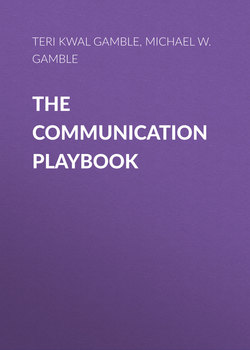Читать книгу The Communication Playbook - Teri Kwal Gamble - Страница 66
На сайте Литреса книга снята с продажи.
The Dangers of Ethnocentrism
ОглавлениеWhen we reject diversity, we exhibit ethnocentrism, the tendency to see our own culture as superior to all others. This also is a key characteristic of failed intercultural communication. People who are ethnocentric experience great anxiety when engaging with people outside their culture. They may say things like, “They take our jobs,” “They’re everywhere,” or “They’re just not like us.” The more ethnocentric individuals are, the greater their tendency to view groups other than their own as inferior. As a result, they blame others for problems they face and often turn the facts inside out, making unsupported accusations.21 When we develop sets of “alternative facts,” we close ourselves to learning the truth.
In an effort to combat revisionist histories, some decide to take action. Theo Wilson was one such person. Wilson was a Black man who had posted YouTube videos about culture and race. Wilson soon found himself being trolled by people who attacked him with racial slurs and cited twisted facts. Wilson decided to go undercover online by presenting himself as a White supremacist in an effort to figure out the reasons for their hatred of him. He created a ghost profile, and an avatar named John Carter, and passed himself off as a digital White supremacist. Through the 8 months he communicated with other White supremacists, he came to appreciate how their existence in an alt-right bubble contributed to their ability to generate an endless stream of non-White and non-Christian groups to blame for their problems as they struggled to maintain their cultural traditions; yet they were unable to offer any viable solutions.22
